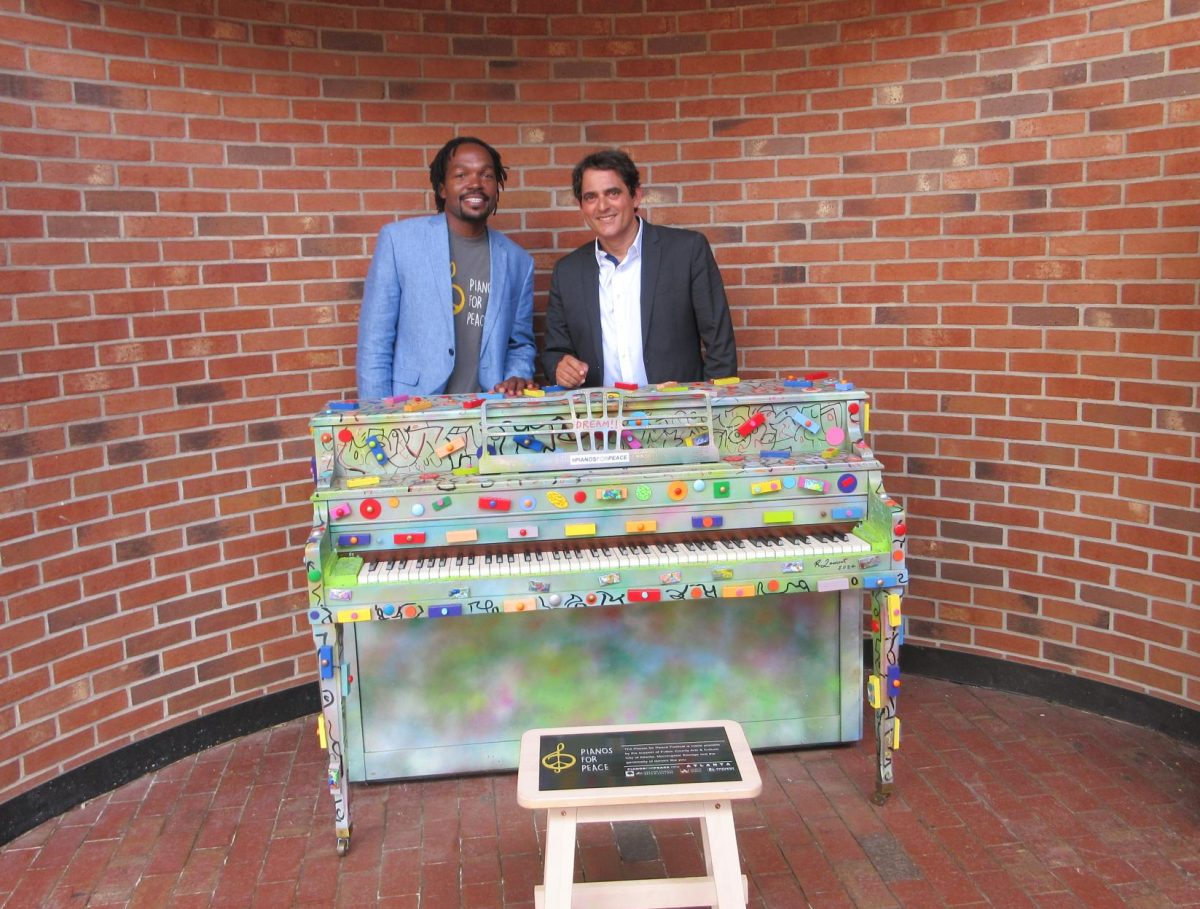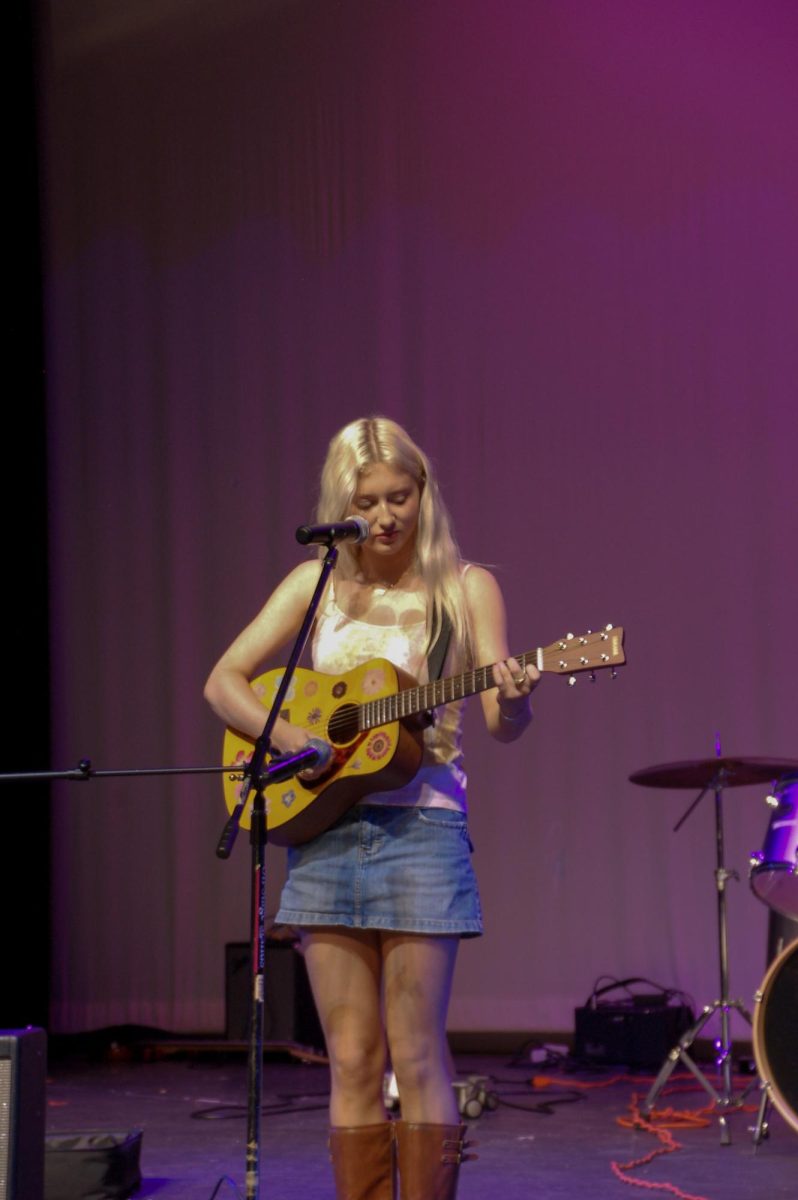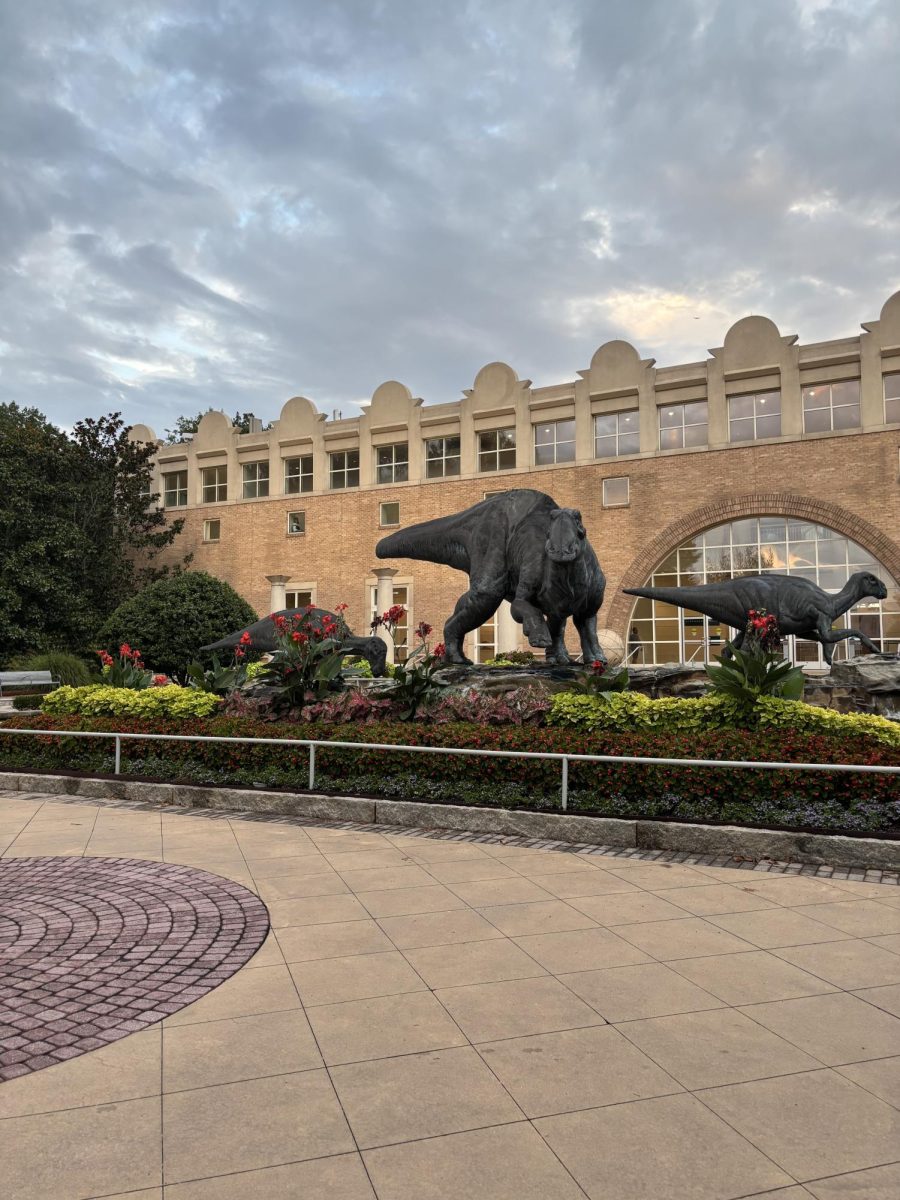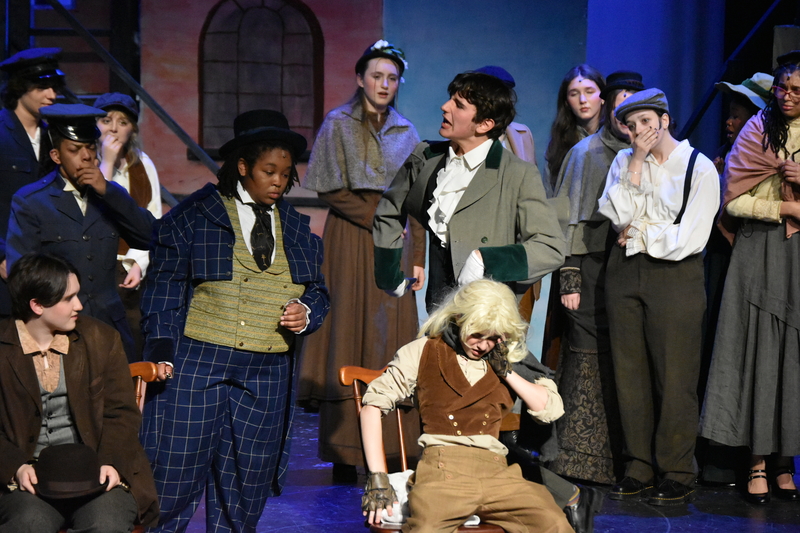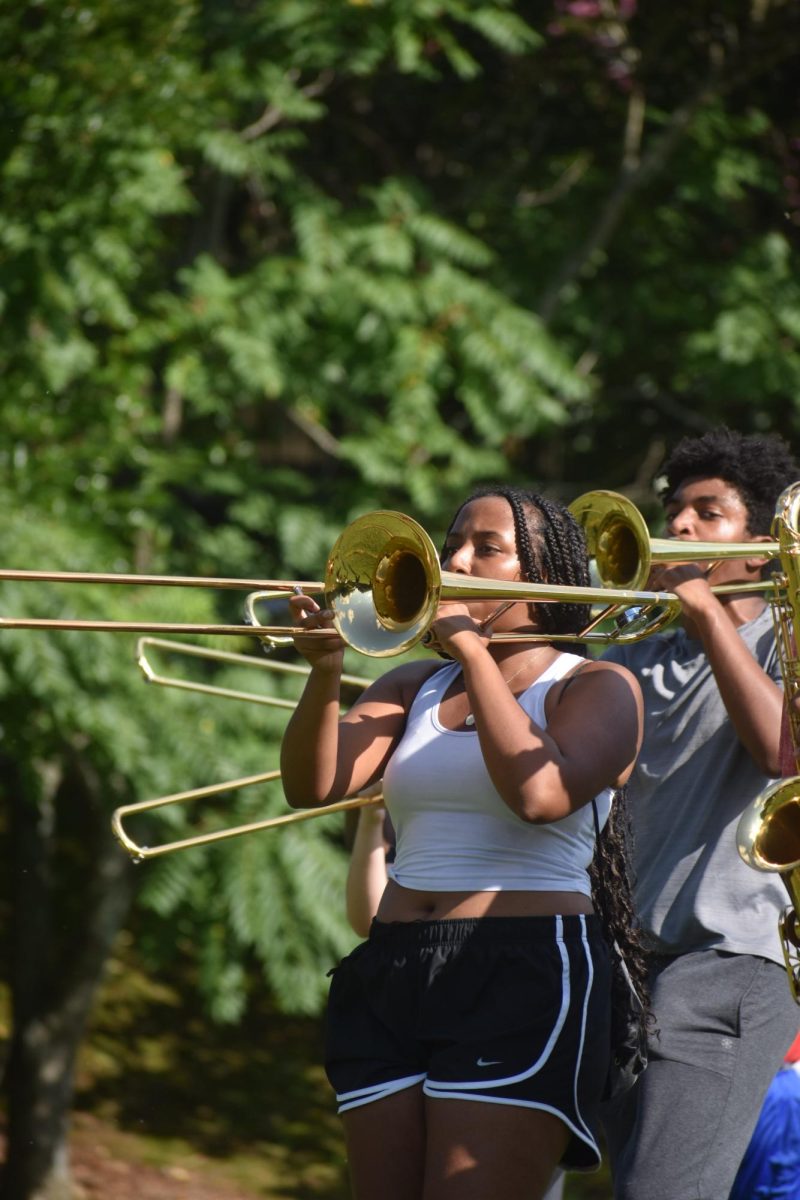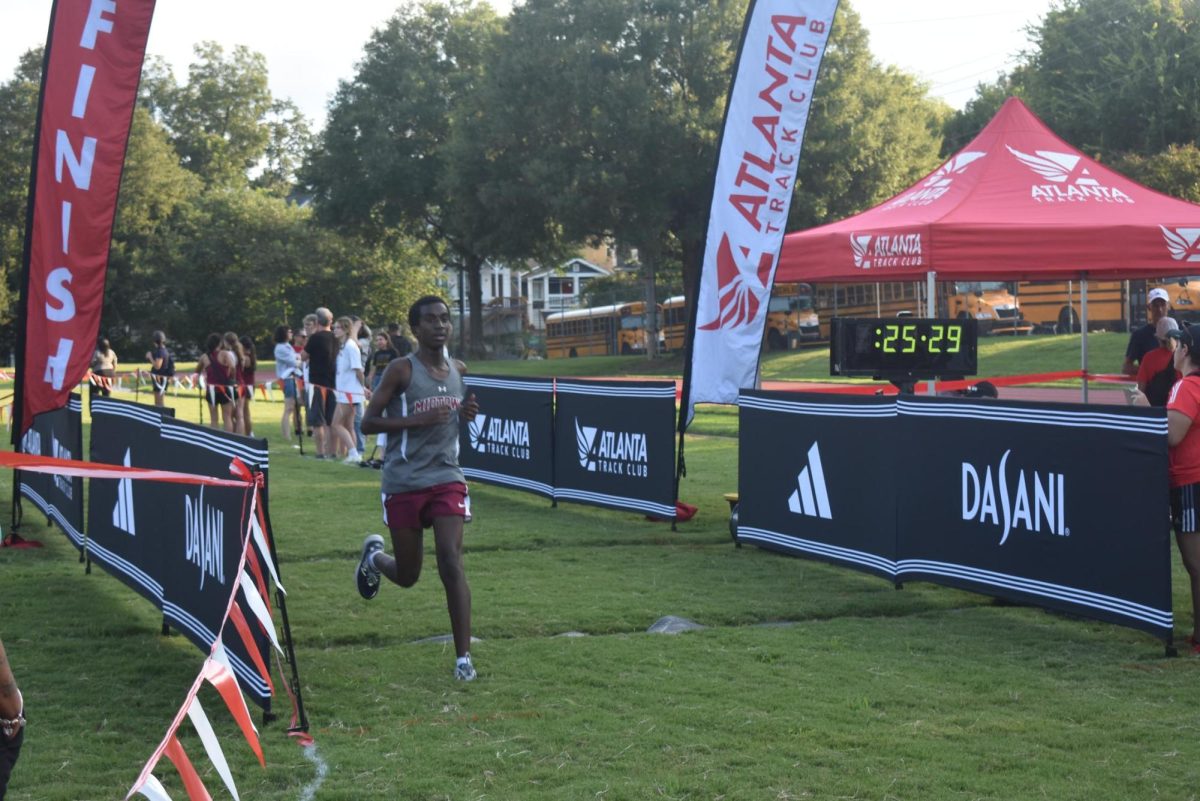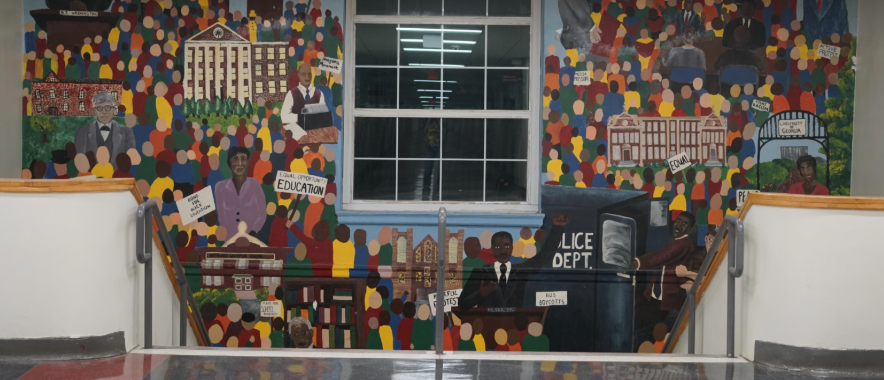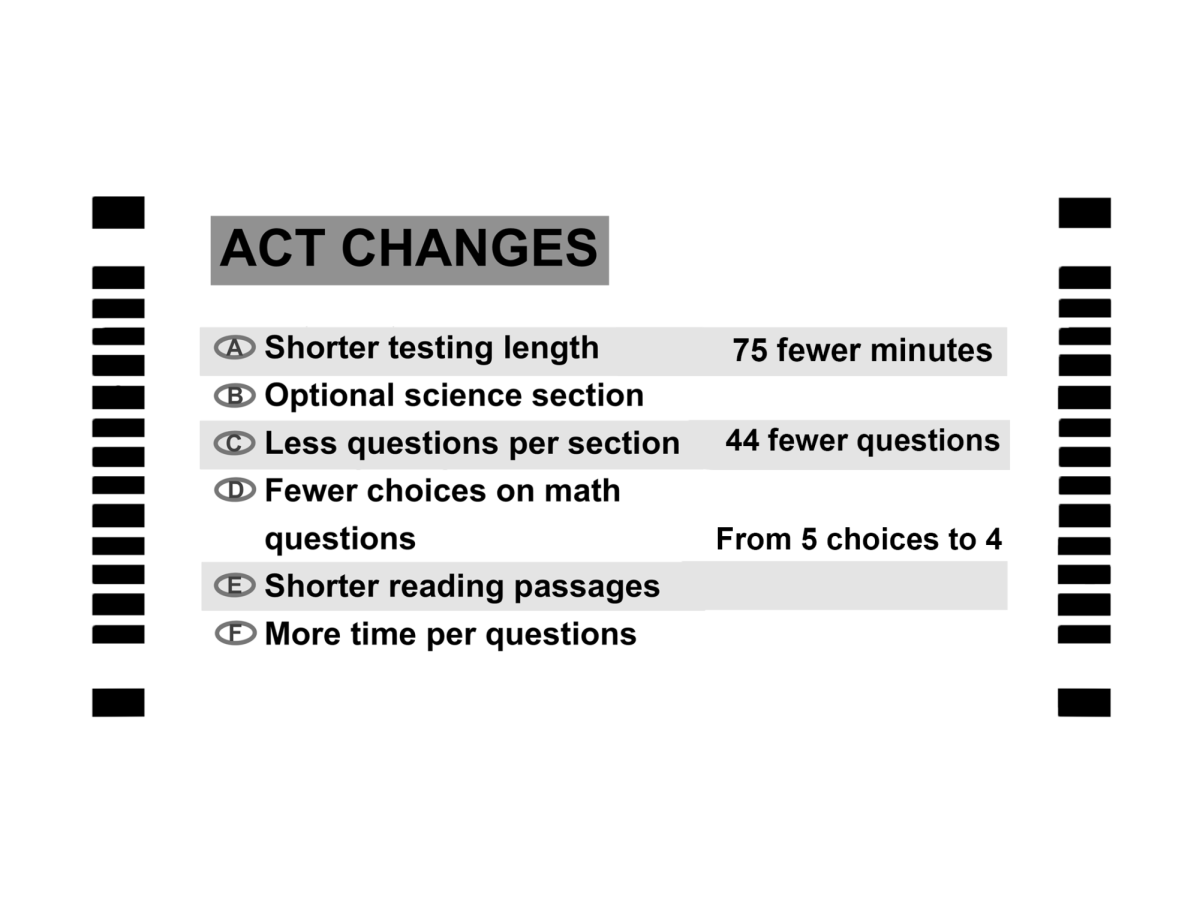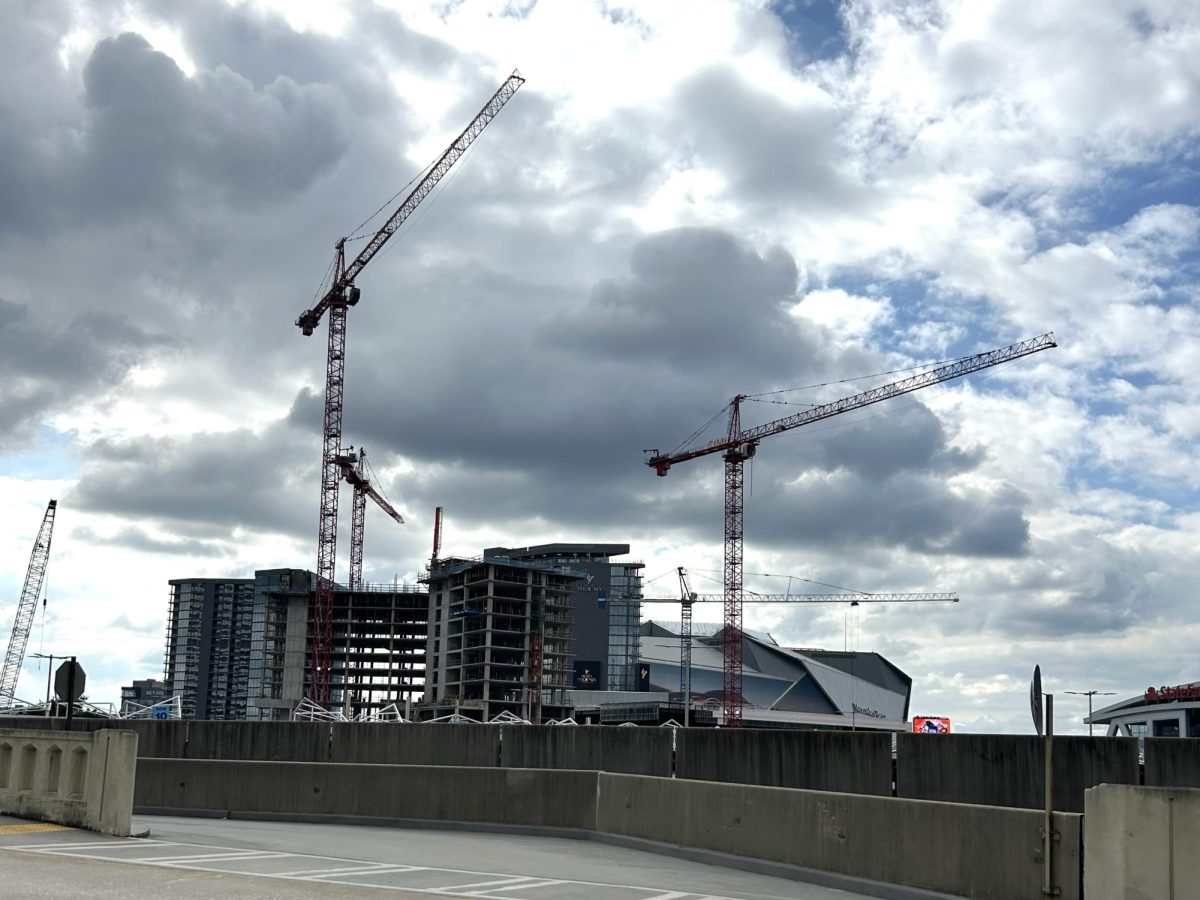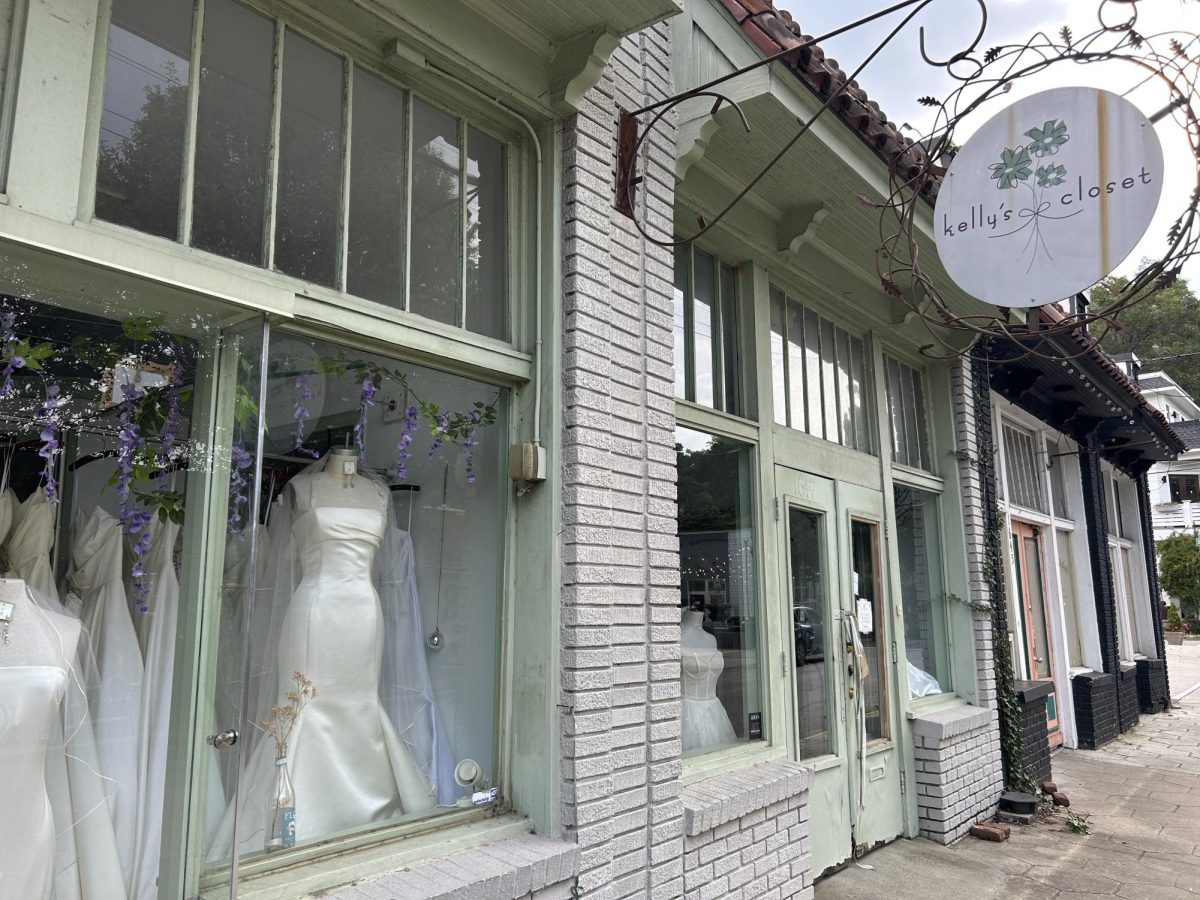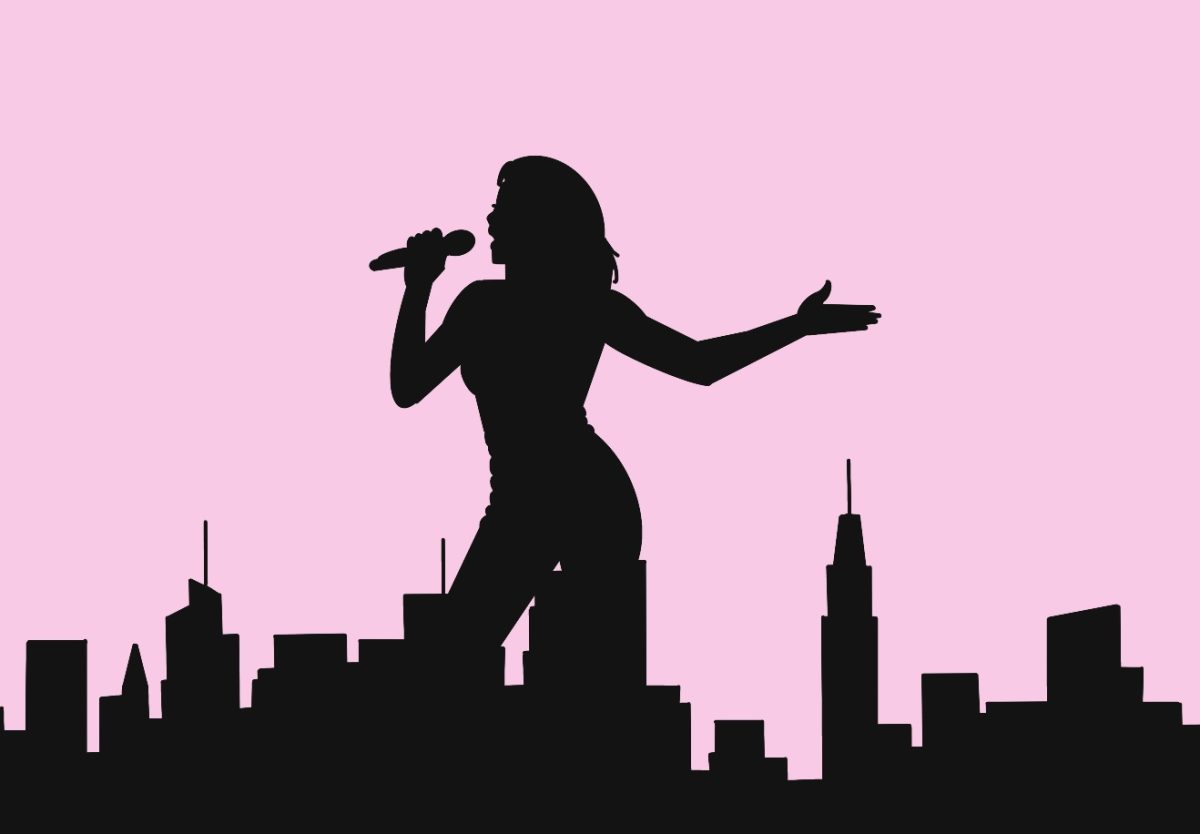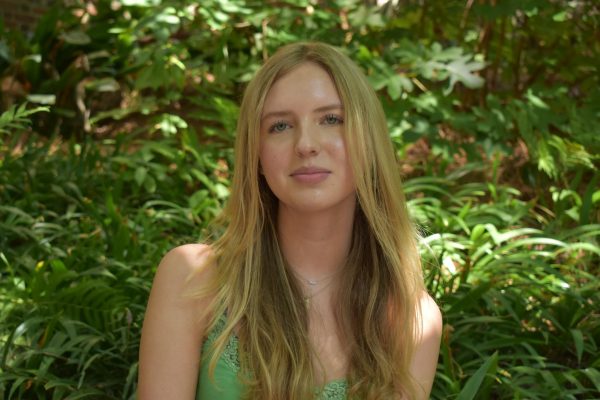Founded with the mission to unite Atlanta through music, the nonprofit organization Pianos for Peace has transformed Atlanta schools, parks and public settings with its uniquely-designed pianos.
In the nine years since its creation, Pianos for Peace has grown from a small initiative to one of the largest public art displays in Georgia, impacting over 1.3 million Atlantans and visitors.
Malek Jandali, an international pianist and symphony orchestra composer, sought to create Pianos for Peace after noticing how piano displays in cities around the world brought people together in public spaces.
“I did it to give back to the community, to celebrate and to unite,” Jandali said. “Music, unlike any other form of art, is intangible. You see the musician, but you don’t see the music. You only feel it or hear it … it really has these bridges between past and present that transcend time and boundaries.”
To confront the traditional views of who can play the piano and where it belongs, Jandali introduced a new approach: painting many of the donated pianos with intricate, colorful designs.
“Why paint the piano?” Jandali said. “Because I wanted to change the narrative. Visually, the piano is either black, shiny or brown and staged. There is an idea that it’s only for the artist. No, here, we change the letter, put it in the street, put it in the park, put it in the MARTA stations.”
Reginald Laurent, who has painted several of the organization’s donated pianos, said he finds the combination of art and music both magnifying and rewarding.
“How many people have not only gotten to paint pianos but then see concert pianists play them?” Laurent said. “It’s just the perfect combination of music and art. Every time I see [Jandali] or somebody else playing a piano that I painted, it’s just the coolest thing. I can’t play the piano, but I can make them sing with color.”
Ameer Muhammad is in charge of community outreach for Pianos for Peace and has noticed the ways in which the community interacts with the pianos. Muhammad said the pianos have frequently elicited positive reactions from those around them.
“What we push is unity, peace, love for the arts and just bringing people together, surrounded by life,” Muhammad said. “You don’t see violence or anything happen around the piano; you actually see smiles and people cheering each other on.”
Muhammad has been collaborating with Jandali since the nonprofit’s establishment in 2015. Muhammad said Pianos for Peace initially struggled with finding locations to place its pianos.
“We started off with anywhere from 10 to 15 locations,” Muhammad said. “We pushed out these pianos from all of these different locations, and we knocked on the doors from all these organizations. We got a lot of noes, but we got the right yeses.”
Muhammad said at the start of the fourth year of the nonprofit’s operation, engagement with businesses around Atlanta picked up and Pianos for Peace received recognition from news channels.
“It was an instant year, and all our noes became yeses,” Muhammad said. “Once you have a history of the impact that it’s having on the city, most organizations want to be a part of it, so they’re actually calling you before you call them. So, I’ve seen that growth tremendously. It’s rare to get a no now.”
Every year between Sept. 1 and Sept. 21, Pianos for Peace holds its annual festival, where 50 pianos are displayed in public spaces around Downtown and Midtown Atlanta for visitors to play. After Sept. 21, which is International Peace Day, the 50 pianos are donated to public schools, healthcare facilities, homeless shelters and nursing homes.
Muhammad said the festival provides an opportunity for smaller musicians to gain notice from the music scene in Atlanta by taking advantage of the publicly-displayed pianos across the city.
“What ends up happening is, people who may not have access to that type of equipment, a lot of them shoot videos from their phone cameras,” Muhammad said. “Because of the pianos’ beautiful painting, it makes for a great look. So, some artists, who may not be the bigger artists, get attention from the bigger artists from the Atlanta community; so, it’s a great incorporation.”
Jandali said displaying pianos in open spaces comes with obstacles for the organization during the festival.
“One of the biggest challenges we have is maintaining these pianos during those 21 daysbecause of humidity and weather,” Jandali said. “We don’t want this piano damaged after being painted and tuned, and taking into consideration that the ultimate goal is donating that piano. So, we can’t donate a piano that has been damaged to a nursing home or a school or a healthcare facility.”
Some public spaces the pianos are displayed in during the festival are permanent locations, including the King Center.
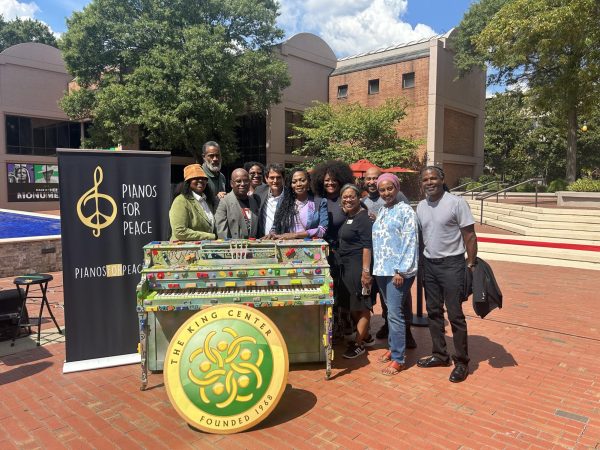
Bonita Hampton Smith, the King Center’s chief operating officer, said the goal of Pianos for Peace to unite communities through music aligns with the vision of the King Center, making it a beneficial partnership.
“Our ultimate goal is creating a world where justice, peace and love prevails, and part of that is having peace with justice,” Hampton Smith said. “What better way to have and show forth peace than music? Our founder was a trained concert vocalist, and she played the piano and violin; so, music is part of her fabric and makeup. But it also symbolizes peace, which is the essence of Dr. King’s work. So, it’s like a threefold cord representing the King legacy.”
Laurent believes there is importance in placing the pianos in historical spaces in Atlanta such as the King Center.
“When you have something for public consumption, for example, the piece at the King Center, do you have any idea how many people internationally will see that piano? Thousands upon thousands,” Laurent said. “I know that when I’m going about my day, somebody is at the King Center enjoying that piano. It is that feeling you get from public art; it gives you a broader audience.”
A key element of the nonprofit’s mission is to help build equity in arts education for adolescents. Dr. Sara Womack, Supervisor of General and Choral Music, Dance and Theatre at Cobb County Schools and Pianos for Peace board member for Arts Education, said around 40,000 students in the Atlanta metropolitan area have gained access to pianos through Pianos for Peace.
“In APS, the art classes would paint the [donated] pianos, and then those pianos would be in a common space in the school, so the students could use it; It was an art project, as well as a music tool,” Dr. Womack said. “[Jandali], the founder, has also done a lot of programs to offer performances where he’s playing the piano along with a student group. Five years ago, he did a performance with the Midtown orchestra, and so they were able to play with an internationally-renowned pianist and composer himself.”
Since the organization’s establishment, Pianos for Peace has partnered with 148 schools in the Atlanta area. Muhammad believes it is critical to donate pianos to schools due to a diminishing emphasis on arts education.
“We can remember in schools we went to where you could do home economics; you could do music; you could do woodshop,” Muhammad said. “We had all those classes; it was normal. But now, it’s rare to find a school that actually has programs dedicated to trades or even creativity. The underserved schools really don’t have those programs, so those schools we tend to go to first.”
Dr. Womack believes there is importance in providing schools with pianos to facilitate student learning.
“Well-rounded education is part of the public school, and so making sure that students have access to and an opportunity for the arts, as well as academics and athletics, is very important and essential to any child’s education,” Dr. Womack said. “They may not have those opportunities through their homes or through other community organizations. Having access at school is essential to open children’s eyes to the different possibilities they have in life. Even if they don’t go into the arts or go into music as a career, being able to appreciate music and what that offers is really important.”
Jandali hopes to further expand the Pianos for Peace in the coming years, donating more pianos around the Atlanta metropolitan area to fulfill the goal of bringing peace to the community.
“There is nothing better than music that unites people, and the magic of the arts and the soft power to unite and to bring unity back to the community,” Jandali said. “Our motto is ‘building peace through music and education’ and having a curriculum so we teach kids and students that music is not just entertainment and fun; It also can transform; it can change your mind, it can unite.”

